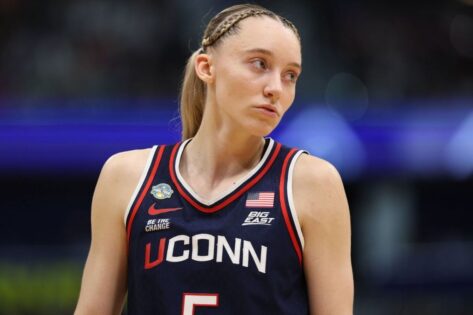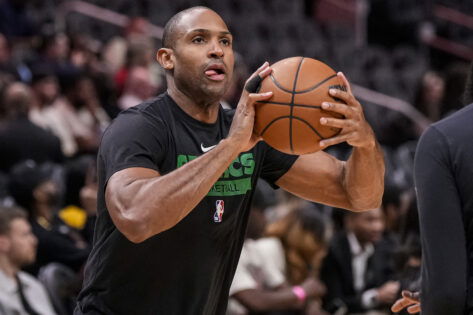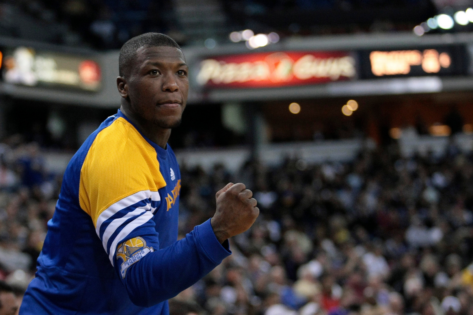This isn’t just about stats. The reason why the current era is important for women’s basketball is… the world is catching on and truly falling in love with the game. What started in 1996 as a humble eight-team experiment has grown into a mighty league of 13, a powerhouse built on passion and grit. Currently, this movement is powered by the fire of new stars like Caitlin Clark, Paige Bueckers, Angel Reese. These aren’t just hoopers. They’re cultural forces. They’re shifting storylines, rewriting playbooks, and turning WNBA into a prime-time attraction. Whether you have been a longtime fan or you’re just showing up….welcome to the revolution.
But with that kind of spotlight, every word these stars say gets amplified. Every opinion becomes a conversation starter. And for years now, one message has stayed at the core of that conversation: the need to uplift and center Black women in this space. Back in 2021, when Paige Bueckers won Best Female College Athlete at the ESPYs, she used her platform to honor Black women.
Fast forward four years, she’s still holding that line, telling TIME in a recent interview, “It’s still an issue, every single day… There’s not ever equal coverage.” Now, Paige knows her talent speaks volumes. But she’s also self-aware about something a lot of white athletes rarely address: privilege. “There’s white privilege every single day that I see,” she said. “I feel like I’ve worked extremely hard, blessed by God. But I do think there’s more opportunities for me… even just marketability, people tend to favor white people.”
Well, that comment stirred the pot.
Apr 14, 2025; New York, New York, USA; Paige Bueckers is interviewed by ESPN after being selected with the number one overall pick to the Dallas Wings in the 2025 WNBA Draft at The Shed at Hudson Yards. Mandatory Credit: Vincent Carchietta-Imagn Images
One voice came through loud and clear. Longtime sports reporter Michele Tafoya, who’s been covering the W since its earliest days, didn’t deny Paige her right to speak her truth. But she did push back hard, saying, “She’s misguided in her view of reality.” Her reasoning was “The population of the United States is 13.4% Black. The population of the WNBA is 80% Black. So Paige Bueckers and Caitlin Clark are somewhat of a minority in the WNBA.”
Then she dropped the real question: what does representation actually mean?
Tafoya argued that if we’re going to celebrate little Black girls seeing themselves in the stars of this league – which, of course, we should – then we also need to recognize the little white girls out there pointing to Caitlin Clark and Paige Bueckers and going, “She looks like me.” That’s representation too. Now, racism has been a debating point and it’s absolutely something worth fighting.
But Tafoya wanted to draw a line between systemic inequality and what’s happening in women’s basketball right now. And to do that, she took us on a bit of a history tour. She reminded everyone that in Year 1 of the W, two of the three biggest faces were Sheryl Swoopes and Lisa Leslie, both Black women who became icons of the league. “That was three years before Paige was even born,” Tafoya said. “I was there for that.”
And if we’re talking marketability? Let’s pull up the receipts. Tafoya pointed to the 2024 earnings chart for female athletes. The top two were Coco Gauff and Serena Williams, again both Black women. Caitlin Clark was down at No. 10. So that idea that white women are always favored in the endorsement game is a bit shaky, according to the data.
She didn’t stop there. She pulled up the WNBA’s highest-paid players list too. At No. 1 was Jackie Young. Then Kelsey Mitchell. Then Jewell Loyd. The top three are all Black women. If we zoom out to the bigger endorsement game, A’ja Wilson’s a prime example. She’s got her own signature shoe line with multiple colorways. You know how rare that is? As Tafoya put it that a signature shoe screams ‘I’ve made it.’ Out of the 15 WNBA players past and present who’ve had one, nine are Black. Who started it all? Swoopes, the first woman ever to get a signature shoe.
So, for Tafoya, the narrative that Black players don’t get marketing love just doesn’t hold up. “With all due respect to Caitlin and Paige… it is demonstrably false,” she said on her YouTube channel. Even if we talk about modern-day marketing phenoms, nobody’s doing it like Angel Reese. This entire season was basically a masterclass in brand-building. “It’s admirable that you want to boost everyone around you,” she said, “but let them boost themselves. They seem to be doing a pretty good job.”
“If you see racism in the world, go ahead, fight it with every fiber of your being. I applaud that But don’t make it up…don’t say it is where it isn’t.” Whether you agree with Tafoya or not, this is what makes the WNBA so electric right now. It’s more than just basketball. It’s culture. It’s commentary. It’s community. When you talk about the intersection of sports and culture, when you even think about the diverse fan base, you think W. Black women have been the building blocks of this sport and the same goes for White women.
When we talk about representation, this revolution has been extending to ownership as well.
Serena Williams’ move into ownership could be the game-changer
Serena Williams added a new title to her already legendary resume: WNBA owner. The tennis icon officially joined the ownership group of the Toronto Tempo, the league’s newest franchise set to make its debut in 2026. And while that’s big news on its own, it’s the ripple effect of her presence that could truly change the game.
Williams brings more than just star power…she brings legacy, influence, and a track record of pushing boundaries in every arena she enters. This marks a massive win for women’s professional sports. Canada’s first WNBA team is arriving at the perfect time. Just three years ago, Toronto hosted its first-ever WNBA exhibition game, and the energy was electric.
Fans packed the Scotiabank Arena, proving that the demand was real and the passion was deep. Canada’s sports scene is already buzzing with the upcoming launch of its first professional women’s soccer league and record-breaking crowds in the PWHL. Williams’ involvement only amplifies that momentum.
“If you’re the Toronto Tempo, you align yourself with someone who is so about progressing women’s sports, making sure that resources are available, making sure that a strong culture is set.”@Kayla_Grey breaks down the Toronto Tempo adding Serena Williams as a part-owner pic.twitter.com/eSkuslPpQ2
— THE SHIFT (@theshift_sports) March 4, 2025
Her presence in the WNBA isn’t just about basketball, it’s about long-term investment as someone who has played a sport and understands how much it means for women’s sports As she put it herself, “This moment is not just about basketball. It is about showcasing the true value and potential of female athletes.”
Williams already made waves in the NWSL as a founding owner of Angel City FC. Now, she’s bringing that same energy to the W. This is the kind of leadership women’s sports desperately need. Toronto is ready. Don’t be surprised when every single seat is filled in the the first Tempo game next year.
The post Paige Bueckers’ Stance Shut Down as National Reporter Debunks Privilege Debate appeared first on EssentiallySports.



